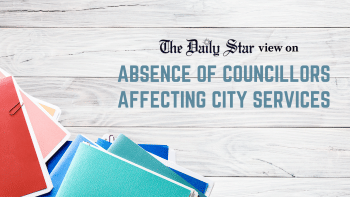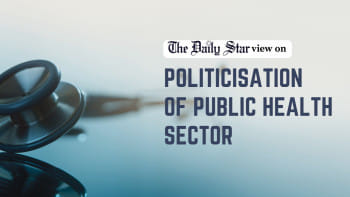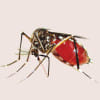Are we ignoring the dengue threat?

After the student-led mass uprising toppled the Awami League government, there have been so many issues jostling for our attention that the danger of dengue during a rainy season got pushed to the background. Our dengue control measures have never been adequate. One additional challenge this time has been the leadership chaos within city corporations and municipalities making it difficult to do their jobs, including dengue control. According to the DGHS, 79 people have died and 12,495 have been infected from January 1 to August 30. Reportedly, hundreds of patients are getting admitted to hospitals across the country every day. This calls for proper interventions from the authorities.
The governance issues within the city corporations may complicate efforts, however. Although the administration has installed CEOs with full administrative and financial power to run the 12 city corporations, replacing the mayors, we have seen how the crisis of councillors is delaying or disrupting their activities. In Dhaka, where 66 out of 75 ward councillors in the south and 11 out of 54 councillors in the north have been reported absent or missing, the provision of 14 mandated services and important activities like sanitation and mosquito control are being hampered. Without effective coordination in the grassroots, any drive to prevent the spread of dengue may not be successful.
The dengue issue has acquired some urgency after heavy downpours and flooding in recent weeks. The flood has affected some 73 upazilas across 11 districts, including crowded municipal areas. Floodwaters have begun to recede now, leaving behind garbage scattered everywhere, which will require a clean-up. This along with waterlogging caused by continued rains in many parts of the country are reasons enough to worry about potential outbreaks of diseases, including mosquito-borne ones like dengue. This must not be taken lightly, especially after last year which went on to witness the deadliest dengue outbreak in the country's history. A total of 1,705 dengue-related deaths and 321,179 cases were reported in 2023. This was largely due to the inadequate and often unscientific measures taken by the authorities. We don't yet have a vector control policy; the insecticides sprayed are also of questionable quality. In addition, inclusive data, which can help in making targeted interventions, continues to elude us.
The political governments of the past two decades could not do much to control dengue, which only grew in intensity with each year. But people have a lot of expectations from the interim government, and they must not fail in this regard. For that, proper, scientifically driven, and centrally coordinated initiatives are a must. We urge the government to take the dengue threat seriously, taking proactive rather than reactive actions, so that it can be contained in time.


 For all latest news, follow The Daily Star's Google News channel.
For all latest news, follow The Daily Star's Google News channel. 










Comments